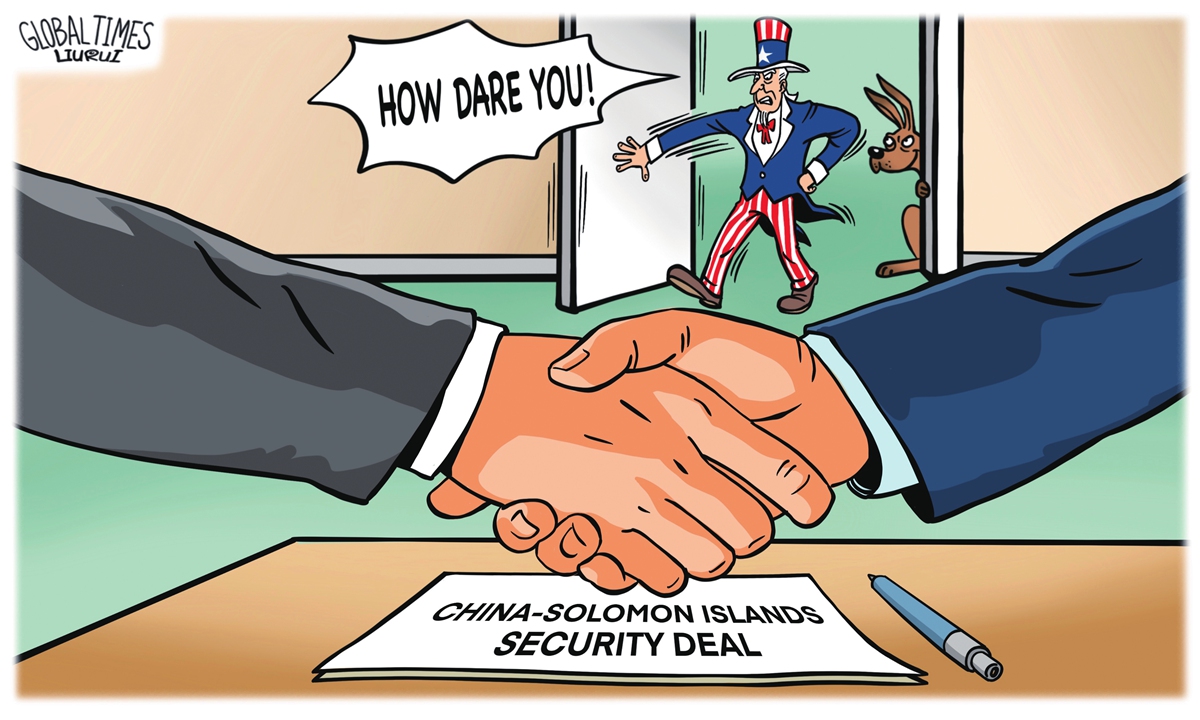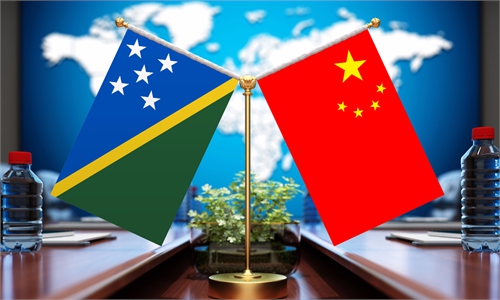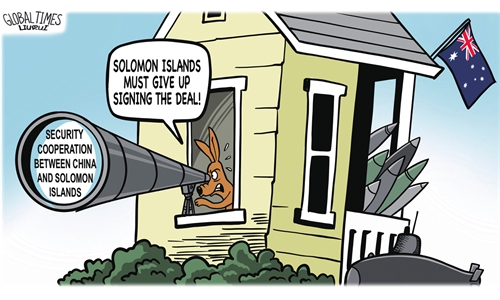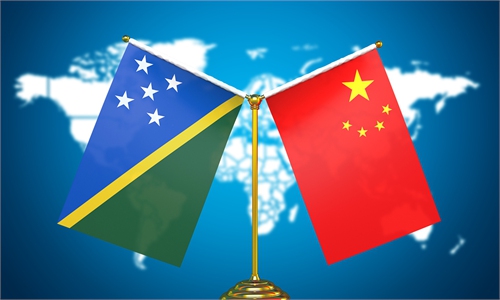
Illustration: Liu Rui/GT
A delegation of US officials, including White House National Security Council Indo-Pacific Coordinator Kurt Campbell, will visit the Solomon Islands this week, the White House said in a statement Monday. Some voices suggest Washington intends to urge Honiara to give up its security agreement with Beijing.According to Chinese foreign ministry, China and the Solomon Islands have formally signed the security cooperation framework agreement, ahead of Campbell's scheduled visit.
Last week, Australia's Minister for International Development and the Pacific Zed Seselja, already paid a two-day visit to the Solomon Islands to discuss the matter.
Apparently, both the US and Australia don't want to see that once the China-Solomon Islands pact becomes reality, more regional countries may choose to cooperate with China in terms of security - meaning the decline of Canberra and Washington's regional influence.
The US and Australia may still try to disrupt the security cooperation between China and Solomon Islands, analysts believed.
For example, the US can use Australia to threaten the Solomon Islands, as Honiara is in great need of Canberra in many aspects. In addition, the US always tries to exploit every conceivable means to achieve its goals. "This may include launching a public opinion warfare and aiding opposition forces to provoke conflicts in the Solomon Islands," according to Zhou Fangyin, a research fellow at the Guangdong Institute for International Strategies.
The US may also try to use potential aid as lever as officials from the US Agency for International Development (USAID) will reportedly visit the Solomon Islands with Campbell.
But is the US really so generous to help the development of another country?
For example, isn't the objective of USAID to "advance US national security and economic prosperity?" Judging from that, even if the "carrot" in Washington's carrot and stick policy works somehow, the US will put its own interests first and other countries at risk.
Before China strengthens its cooperation with regional countries, including the Solomon Islands, the US has paid little attention to the South Pacific, leaving the region mainly to its deputy sheriff Australia.
The assistance of the US to the Solomon Islands has been quite limited for nearly 30 years after the US embassy in the Solomon Islands was closed in 1993, but it was announced in February the reopening of the embassy. The reason for the reopening is obvious: The US now desperately needs the Pacific Island country to stop China's presence in the country and the region.
Washington's current interests in the South Pacific region are heavily military-focused. The US military plans to expand military bases in the region, and even deploy intermediate-range missiles in countries like Palau. This is undoubtedly dragging the South Pacific region into the geopolitical game of the great powers, threatening regional security and peace.
But Washington may find it not so easy to disrupt the China-Solomon Islands security cooperation. First, the Solomon Islands knows the security pact is in its interest. The cooperation with China, particularly in police affairs and law enforcement, can ensure the stability and development of the Pacific nation.
Moreover, the Solomon Islands should realize it is under the special attention of Washington because the US wants to use it as a pawn to contain China. That is why the US is offering some "carrots" to the Pacific nation.
However, history shows that such benefits are often lip service or extremely costly. And once the Solomon Islands is seen as strategically not so useful in the eyes of Washington, perhaps not even a bit of "carrot" will be promised to the Pacific Island nation.



